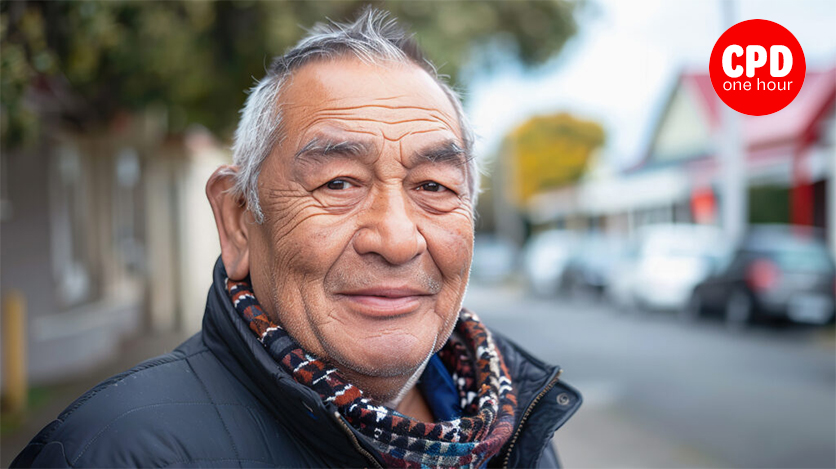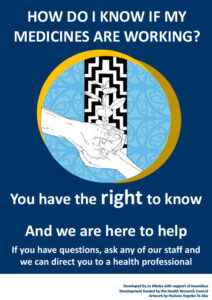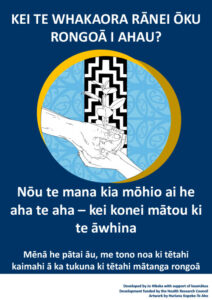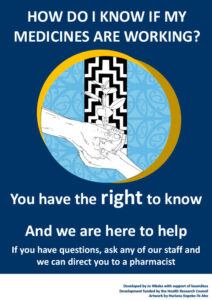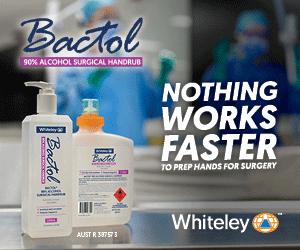 This course, on medicines and older Māori, comprises four videos, an independent reflection exercise, and a list of extra resources. It also includes downloadable posters developed after discussions with kaumātua, which can be displayed in your workplace.
This course, on medicines and older Māori, comprises four videos, an independent reflection exercise, and a list of extra resources. It also includes downloadable posters developed after discussions with kaumātua, which can be displayed in your workplace.
Watching the videos and completing the independent reflection qualifies as one hour of continuing professional development (CPD).
This material was produced by He Ako Hiringa with Joanna Hikaka (Ngāruahine), a pharmacist from the former Waitematā District Health Board, whose research as a PhD candidate formed the basis of this resource. Her research was made possible with funding from the Health Research Council.
Videos
The four videos are:
Video 1: Course introduction
This video outlines the course and what clinicians can expect from the videos and other resources.
Video 2: Ethnic variations in the quality use of medicines for older adults in Aotearoa
Video two looks at why extra care is needed with medicines use in older adults, how to measure the quality use of medicines, and what the New Zealand data shows us about inequities in medicines use in older adults.
Video 3: Medicines review services for older Māori
The third video in this course examines medicines review services, how these can improve the safe and effective use of medicines for older adults, and what inequities there are within these review services.
Video 4: Older Māori experiences of medicines and medicines-related services
In the last video, clinicians hear directly from kaumātua about their experiences of medicines and medicines-related services. These quotes will improve clinician awareness about the real-life impacts of inadequate prescribing on older Māori.
As one kaumātua so aptly stated: “No te whitiwhiti kōrero i mohio ai – It is through shared conversation that I understand.”
Video 4 also presents posters that have been developed from the experiences of older Māori. These are available in te reo Māori and English and can be displayed in your place of work.
Posters
These posters have been developed by Hikaka, in consultation with kaumātua, and are intended to encourage them and others to have discussions with clinicians about their medicines.
If you display these posters, the intention is that you are prepared to engage in any discussions they generate. Viewing the four videos in this course helps to give context to the posters.
|
|
|
|
Independent reflection
After watching the videos and exploring the additional resources (below) in this course, you can complete an independent reflection. This activity encourages you to set goals to improve your management of older Māori patients. You can claim continuing professional development points/hours for watching the four videos and completing the independent reflection.
We have provided example answers in some of the reflection activities to help you formulate your goals and actions. You should replace these examples with your own thoughts.
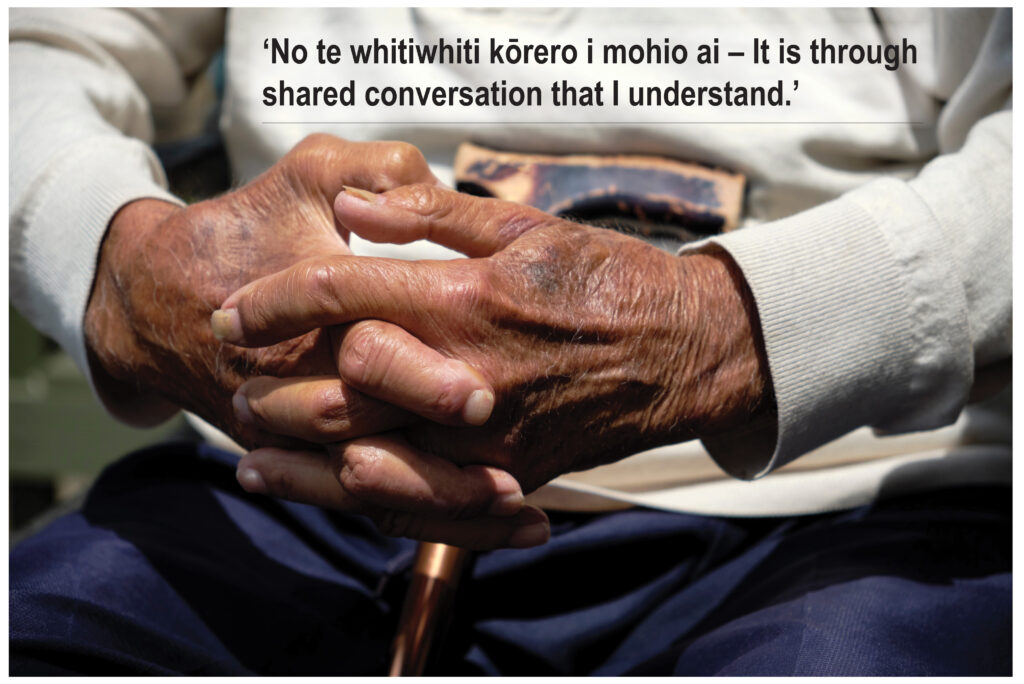
Additional resources
These additional resources include tools, articles and links that could help you to improve your treatment of older Māori.
- Hikaka, J., Jones, R., Hughes, C., Connolly, M. J., & Martini, N. ( 2021). Ethnic Variations in the Quality Use of Medicines in Older Adults: Māori and Non-Māori in Aotearoa New Zealand. Drugs & Aging, 38(3), 205-217.
- Māori experiences of healthcare – videos.
- Tāhū Hauora, Health Quality & Safety Commission. Tools to guide which medicines should be considered for deprescribing. Updated April 2022.
- Pharmaceutical Society of New Zealand. Pharmacy Healthcare Services: Medicines Use Review.



